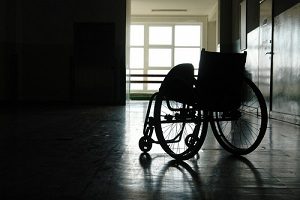Increased Federal Funds, Incentives, and Requirements for Nursing Homes Brings Worrisome Opportunities for Fraud

The pandemic has exposed the razor thin margin for error by which our most vulnerable are cared for in nursing homes. New aggregate federal data reveal the appalling toll on facility residents and staff: over 31,700 deaths as of June 4, 2020 (an undercounted 1/3 of all US COVID-19 deaths), according to the federal government’s Nursing Home Compare. Responsive federal funding for nursing homes, requirements for coronavirus reporting, and increased penalties for infection control and survey deficiencies, while sensibly aimed at triaging this national tragedy, might invite fraud at the worst possible time.
When COVID-19 hit, few long-term care facilities had the cash reserves needed to fund immediately needed staff, training, PPE, and Covid-19 testing. HHS has now released $4.9B in CARES Act funds for nursing homes and is providing additional funds to states for increased site surveys for outbreaks and infection control.
The CARES Act money is not a blank check. The terms require it to be used only “to prevent, prepare for, and respond to coronavirus” and “only for health care related expenses or lost revenues that are attributable to the coronavirus.” And in light of the shocking number of deaths and cases at nursing homes, CMS has ratcheted up penalties for infection control violations. CMS also has implemented new COVID-19 reporting requirements in the hopes of harnessing important learnings from the data.
We can’t assume that the relief funds will go directly to improving patient care or worker protection. The federal monies are permitted to be used for “lost revenues” due to Covid-19; theoretically, facility owners may apply them towards lost or diminished executive salaries or other past losses, thus having zero effect on current residents. And it could be very difficult for the public to enforcement authorities to discover whether the funds’ use is authorized at all: while HHS requires certain reporting, if the reporting is falsified, we might not know this absent an insider coming forward with information.
We’ve written earlier that routine surveys of nursing homes have been halted, some states are extending some measure of immunity to them, and the growth of private equity control over nursing homes raise serious concerns of accountability for severe or intentional nursing home deficiencies. The CMS announcement to ratchet up infection control penalties and condition some state funding on survey compliance seems designed to triage the most urgent safety issues. The unfortunate effect of punitive incentives is that they can invite fraud.
As with the PPP program and programs to help small businesses, scammers will take advantage of the CARES Act funds to line their pockets with taxpayer dollars. A $2,500-per-bed payment may incentivize the filling of beds, even if it is not safe to do so given Covid-19 and the scarcity of labor or other infection control resources. In the past, the DOJ and whistleblowers have exposed fraudulent schemes in which nursing-home owners have paid kickbacks in order to receive patient referrals for the purpose of filling beds.
Likewise, the increased virus-reporting requirements, the results of which may trigger on-site surveys, and the higher penalties for infection control deficiencies, while well-intentioned, might lead to the worst actors further concealing critical problems. Thus, while it’s heartening to see badly needed resources making their way towards the needs of long-term care facilities, we need to ensure that taxpayer dollars are used for appropriate and lawful purposes and not pocketed by other interests.
If you have information about nursing home fraud and you want to consider a whistleblower case, please contact us.
Read more:
- Let’s Talk about Nursing Homes – Who Will Raise the Red Flag Now That Routine Inspections Are Halted?
- Private Equity Ownership of Nursing Homes Might Have Made Everything Worse
- Trend Alert: Nursing Homes Profit at the Expense of Vulnerable Patients
- Under Cover of Pandemic, Nursing Home Residents Illegally Evicted
- Whistleblowers Are Critical to Exposing Fraud in the Murky World of For-Profit and Private-Equity Nursing Home Operations
- Healthcare and Pharmaceutical Fraud
- COVID-19 Fraud
- I Might Have a Whistleblower Case
- Whistleblower FAQs
- The COVID-19 Crisis, Whistleblowers, and the Constantine Cannon Whistleblower Team
Tagged in: CC Lawyers, COVID-19, FCA Federal, Healthcare Fraud, Importance of Whistleblowers, Provider Fraud, SNF,